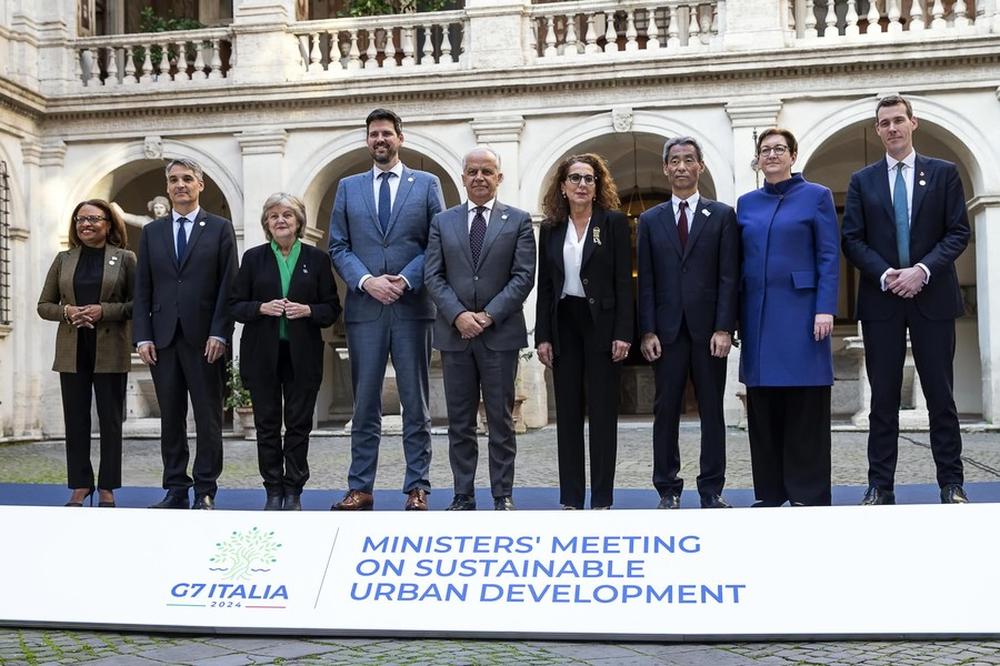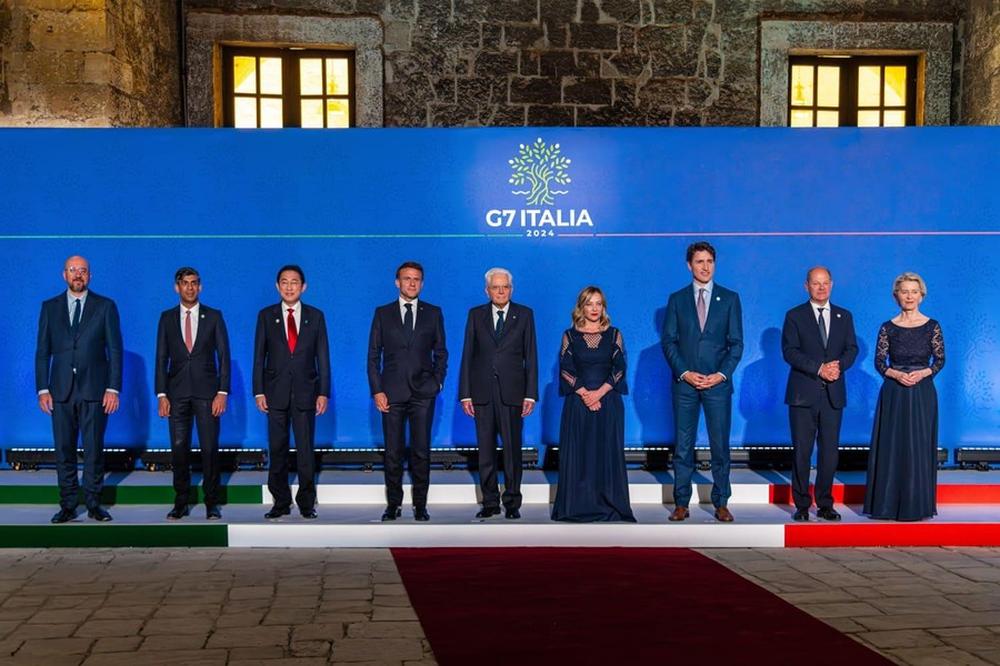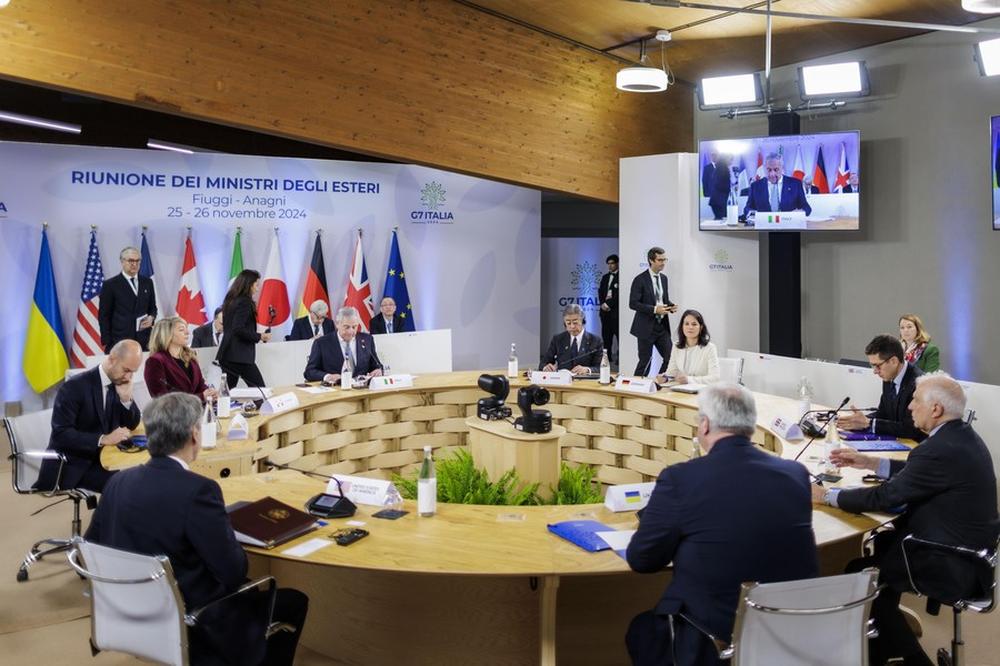- #China
- #Global Issues
- #South Korea
- #US Foreign Policy

► The G7's relevance is diminishing as its focus on Western priorities fails to address critical geopolitical issues in Asia and beyond.
► The G7 needs to expand its membership to include key Indo-Pacific nations like South Korea and Australia, which align with its values and strategic interests.
► Expanding the G7 will enhance its ability to confront global challenges, such as competition with China and security issues in the Indo-Pacific, while strengthening its geopolitical role.
The G7 is in crisis. As the centre of gravity of global geopolitics and economics has moved towards Asia and the Indo-Pacific, its membership skewed towards the transatlantic space has become a hindrance. The group’s share of global GDP continues its long-term decline, several of its members are not at the technological frontier and its diplomatic clout is waning outside of the West.
Take the case of this year’s G7 summit. Italy’s prioritisation of Africa and migration, while important for the Italian government, meant that the summit was irrelevant to the biggest geopolitical questions of our time. Summit discussions about economic resilience, technology or security ran hollow as some of the most important non-G7 members were not at the table. As a result, this year’s G7 summit reinforced one of the criticisms that the summit has been receiving for years: it is a group for Western leaders to feel good about themselves, but it is losing diplomatic ground to other entities such as the BRICS.
In recent years, G7 members such as Japan, the UK and, it should be noted, the United States during the first Donald Trump presidency understood the need to expand the geographical scope of the group towards the Indo-Pacific. They thus invited South Korea and Australia to attend the summits that they hosted or, in the case of the United States, the summit finally cancelled due to the COVID-19 pandemic.
Furthermore, there are a growing number of G7-Plus initiatives and consultations involving South Korea and Australia, focusing on areas such as strengthening economic resilience or addressing the security challenges posed by North Korea. This shows that policy-makers understand that at the working level the G7 has to cooperate with partners. In this respect, the recent G7-Plus statement on North Korea-Russia cooperation signed by the G7 members, South Korea, Australia and New Zealand carried more weight than if the statement had only been signed by G7 members, given that US aside none of them can be considered central to addressing the North Korean security conundrum—with the partial exception of Japan.
The above points out at a way forward for the G7: a need to expand its geographical scope to become relevant again and address the challenge that its members feel is coming from China, Russia, North Korea and other authoritarian regimes. Otherwise, the G7 will continue to have limited influence beyond the transatlantic space.
Considering their strong capabilities, aligned values and geographical location, South Korea and Australia are a natural fit with the current G7 members. Both of them have been quite open about their aspirations to join the G7 as permanent members, rather than invited guests. And their prioritisation of G7 membership as a diplomatic goal makes sense, since it would be commensurate with their economic, political and security status today.
Yet, focusing now on the G7 side of the equation it is important to note that it is the members themselves that should be prioritising the group’s expansion. The G7 is not an economic club anymore. It is seeking to become a relevant geopolitical actor. This has been obvious in the way that the G7 has sought to take a leading role in providing support to Ukraine as Kyiv seeks to fend off Russia’s aggression.
Taking a long-term view, G7 members agree that China is their greatest competitor for the foreseeable future. That is, a country located in Asia rather than Europe. They also want to keep an edge in shaping the global economy, especially in an era in which multinational governance is being eroded and economic nationalism is on the rise. Yet, this requires a degree of technological leadership and centrality to global supply chains that the G7 members do not have by themselves anymore. Bringing both of these priorities together, derisking from China—a goal that all G7 members support—also requires working together with partners with strong industries or natural resources. This points out at the benefits of including South Korea and Australia as permanent G7 members. Not to mention, both of them are U.S. allies and are boosting their security ties with G7 members, for example via the recently signed EU-South Korea Security and Defence Partnership, U.S.-Japan-ROK trilateralism, AUKUS or U.S.-Japan-Australia trilateralism.
All in all, the time for the G7 to expand its membership has come. The benefits far outweigh the potential costs that may come with the need of having more members having to agree on statements and policy. After all, existing G7-Plus cooperation already shows that this is an obstacle that the group’s members, South Korea and Australia can easily bridge. Bringing the G7 closer to the centre of today’s global geopolitics is well worth its expansion.
Ramon Pacheco Pardo is Professor of International Relations at King’s College London and the KF-VUB Korea Chair at the Brussels School of Governance.


